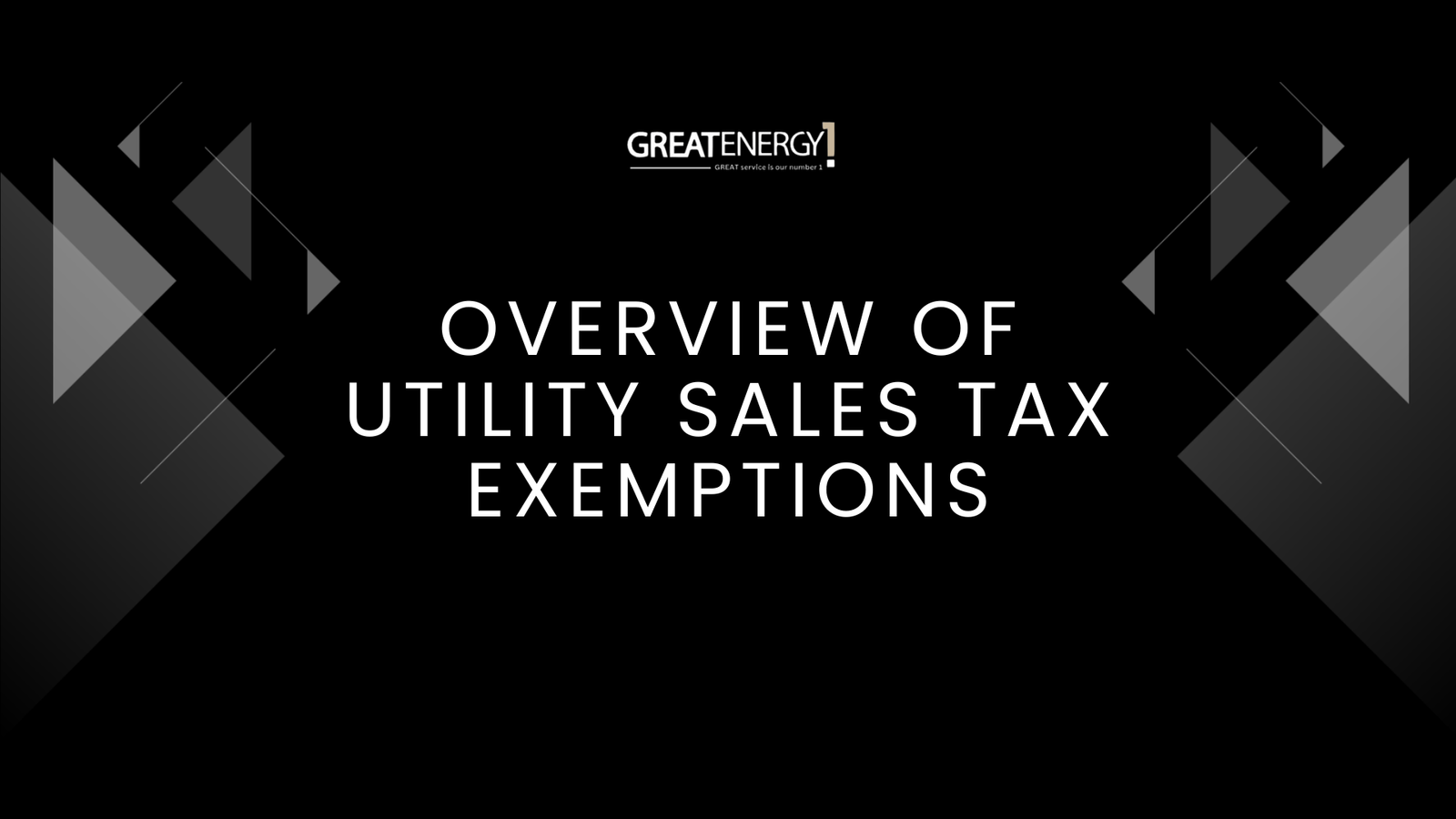Utility sales tax exemptions offer businesses a way to significantly reduce operational costs by eliminating taxes on utilities such as electricity and natural gas. These exemptions are designed to support industries that rely heavily on utilities for production and other qualifying activities, varying by state and sector. Understanding the eligibility criteria and following the application process can help businesses unlock substantial savings and ensure compliance.
What Are Utility Sales Tax Exemptions?
Utility sales tax exemptions provide financial relief by reducing or removing taxes on utility bills for eligible businesses. Industries like manufacturing, healthcare, agriculture, and industrial production often use a lot of energy and utilities. To help these businesses save money and grow, certain tax exemptions are available.
Related Blog:
Understanding Utility Taxes: What You Need to Know
Eligibility Criteria
To qualify, businesses must demonstrate that their utility usage directly supports specific activities. Common qualifying activities include:
- Manufacturing: Operating machinery, powering production equipment, or supporting processes essential for creating goods.
- Industrial Production: Refining, processing, assembling, or fabricating materials or products.
- Agriculture and Food Processing: Utilizing utilities for irrigation, food processing, or refrigeration during production.
- Healthcare and Pharmaceuticals: Running sterilization equipment, manufacturing medical devices, or maintaining climate control for sensitive materials.
- Research and Development (R&D): Powering labs and equipment for innovation and scientific advancements.
The eligibility criteria and percentage thresholds for predominant use vary by state. Businesses must often show that a substantial portion—typically more than 50%—of their utility usage qualifies under these guidelines.
Why Utility Exemptions Matter
Utility exemptions are more than just a tax benefit; they are an opportunity to optimize cash flow and reinvest in critical areas such as innovation, sustainability, and workforce development. For energy-intensive industries, exemptions can lead to savings that amount to thousands of dollars per month. By reducing overall operating expenses, businesses can gain a competitive edge in their markets.
Steps to Apply for Utility Exemptions
Obtaining utility sales tax exemptions involves a systematic process:
- Confirm Eligibility: Review state-specific guidelines to ensure that your business activities align with qualifying categories.
- Conduct a Utility Study: Work with professionals to perform a predominant use study, analyzing your utility consumption to verify eligibility.
- Gather Documentation: Collect supporting materials, such as utility bills, operational statements, and energy audits, to substantiate claims.
- Complete State-Specific Forms: Accurately fill out the required exemption forms, providing detailed explanations of utility use and business operations.
- Submit the Application: File the forms with the appropriate state or local tax authority, ensuring all required documentation is attached.
- Receive Approval: Await confirmation of exemption approval and begin saving immediately upon acceptance.
State-Specific Variations and Refund Opportunities
Every state enforces unique guidelines for utility exemptions. While some states provide broad exemptions for manufacturing and industrial sectors, others have narrower definitions and stricter criteria. In some cases, the exemption may apply only to specific equipment or operations, requiring a detailed breakdown of utility usage.
Related Blog:
The Importance of Utility Tax Refunds for Businesses
Streamlining the Process
While the exemption process may seem complex, working with specialists can simplify the journey. Professionals can assist in conducting utility studies, preparing accurate documentation, and navigating state-specific requirements. Compliance is equally essential; businesses should maintain up-to-date records and periodically reassess their eligibility to avoid penalties or disqualification.
Conclusion
Utility sales tax exemptions provide businesses with a powerful opportunity to reduce costs and optimize operations. By understanding eligibility criteria, conducting a predominant use study, and navigating the application process effectively, companies can unlock significant savings and reinvest in areas that drive growth and innovation. These exemptions are particularly impactful for energy-intensive industries, enabling them to stay competitive and financially efficient.
At Great Energy 1, we specialize in helping businesses navigate the complexities of utility sales tax exemptions. From conducting thorough predominant use studies to managing compliance and securing refunds, our team ensures you maximize your benefits while staying fully compliant with state regulations.
Explore how we can help your business unlock savings and simplify the process of achieving utility sales tax exemptions. Contact us today to learn more!
